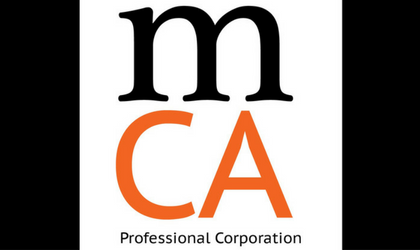As a small business owner, should I take salary or dividends?
Allan Madan, CA

Each option has advantages and drawbacks. It is important to evaluate your particular financial goals before knowing which option is more favorable. The biggest advantage of paying a salary (and bonuses) is that you can deduct this as a business expense, reducing your corporation’s taxable income. However, paying a salary will require your corporation to remit payroll taxes and prepare the necessary tax slips, which can be complicated if you don’t have prior experience.
As well, from a personal perspective, receiving a salary will increase your RRSP contribution room, which will enable you to take advantage of this useful tool. Also, you will be forced to contribute to the Canada Pension Plan (CPP), another great tool for retirement planning. The downside is that salaries are 100% taxable on your personal return.
The biggest advantage of paying dividends from your business’s perspective is the relative simplicity when compared to paying salary. You are not required to make CPP payments and it’s as simple as writing yourself a cheque and updating some corporate documents (i.e.: minute book). However, dividends are not deductible as a business expense.
From a personal perspective, dividends are taxed at a lower rate than salary. However, dividends do not increase your RRSP contribution room, which will prevent you from contributing to your RRSP.
Disclaimer
The information provided on this page is intended to provide general information. The information does not take into account your personal situation and is not intended to be used without consultation from accounting and financial professionals. Allan Madan and Madan Chartered Accountant will not be held liable for any problems that arise from the usage of the information provided on this page.


.png)

SOCIAL CONNECT